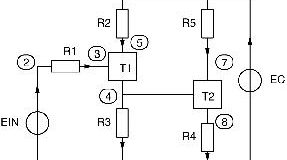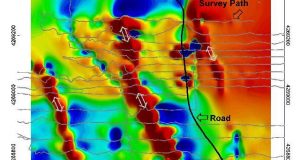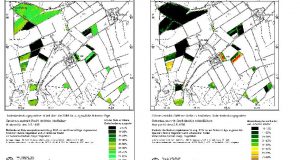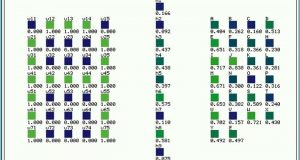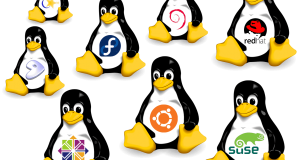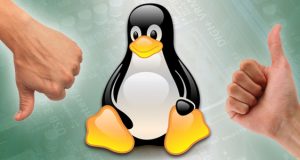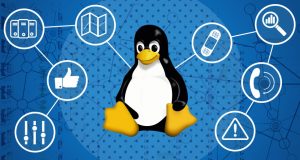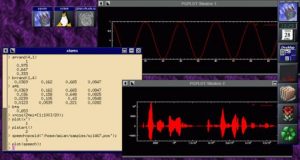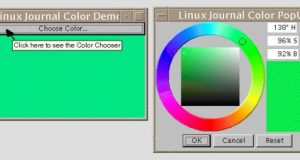Wolf-Rainer Novender Issue #63, July 1999 A look at an automatic circuit analysis program through engineering-based examples. SCEPTRE is an automatic circuit analysis program capable of determining initial condition, transient, frequency and steady-state response of electrical networks and dynamic systems. It is considered a general-purpose tool for engineers and can be used to assist in the design and analysis of ...
Read More »Linux Magazine
Linux for processing of magnetometer data
Laura Connor Charles B. Connor Issue #63, July 1999 How the geophysical industry is using Linux for processing of magnetometer data. Whether searching for gold or oil, or assessing the geologic hazards of a site, geophysics is a high-stakes business. Geophysical exploration involves learning more about the earth’s interior by making measurements at the surface using instruments such as seismometers, ...
Read More »Linux utilities in conjunction with GRASS
R. Joe Brandon Trevor Kludt Markus Neteler Issue #63, July 1999 A description of an archaeology project making use of the freely available geographic information system GRASS. Since the days of Heinrich Schliemann’s search for Troy, archaeologists have been confronted with the dilemma of how to record the spatial characteristics of archaeological data, and once recorded, how to analyze those ...
Read More »Getting and Installing SNNS
Ed Petron Issue #63, July 1999 Exploring connectionism and machine learning with SNNS. Conventional algorithmic solution methods require the application of unambiguous definitions and procedures. This requirement makes them impractical or unsuitable for applications such as image or sound recognition where logical rules do not exist or are difficult to determine. These methods are also unsuitable when the input data ...
Read More »The Distributions Take a Stand on Standards
Norman M. Jacobowitz Issue #62, June 1999 Mr. Jacobowitz talks about standards with representatives of the various distributions by e-mail and at the LinuxWorld Expo. With all of the recent debate about standardization and the future of Linux standards, it’s natural to wonder where the major Linux distributions and other key industry players stand on the subject. So, to find ...
Read More »The Past and Future of Linux Standards
Daniel Quinlan Issue #62, June 1999 “The nice thing about standards is that there are so many of them to choose from.” –Professor Andrew S. Tanebaum (author of MINIX). Despite their well-earned reputation as a source of confusion, standards are one of the enabling factors behind the success of Linux. If it were not for the adoption of the right ...
Read More »Introduction to Multi-Threaded Programming
Brian Masney Issue #61, May 1999 A description of POSIX thread basics for C programmers. The purpose of this article is to provide a good foundation of the basics of threaded programming using POSIX threads and is not meant to be a complete source for thread programming. It assumes the reader has a good strong foundation in C programming. A ...
Read More »Linux makes a good DSP development system
Ian V. McLoughlin Issue #61, May 1999 Follow the development of speech algorithms for digital radios through the complete project life cycle. In this article, I describe a Linux success story based on researching and developing DSP (Digital Signal Processing) speech coding algorithms. I chose Linux over Windows for good reasons—reasons that may provide you with ammunition to persuade the ...
Read More »Java – a complete programming environment
Ian Darwin Issue #61, May 1999 Mr. Darwin takes a look at Java and describes the steps for writing a user interface in Java. If you looked at the earliest versions of Java and concluded that its GUI development toolkit wasn’t quite ready for prime time, it’s time to look again. The Java Foundation Classes (JFC) introduced with Java Version ...
Read More »CORBA Program Development, Part 1
J. Mark Shacklette Jeff Illian Issue #61, May 1999 The authors provide some basics to get the new CORBA programmer started. CORBA (Common Object Request Broker Architecture) is one of those acronyms for which most people have some “feel”, others have some interest, but very few have any real experience. This is the first article in a series of three ...
Read More » Linux, Linux OS, Free Linux Operating System, Linux India Linux, Linux OS,Free Linux Operating System,Linux India supports Linux users in India, Free Software on Linux OS, Linux India helps to growth Linux OS in India
Linux, Linux OS, Free Linux Operating System, Linux India Linux, Linux OS,Free Linux Operating System,Linux India supports Linux users in India, Free Software on Linux OS, Linux India helps to growth Linux OS in India
